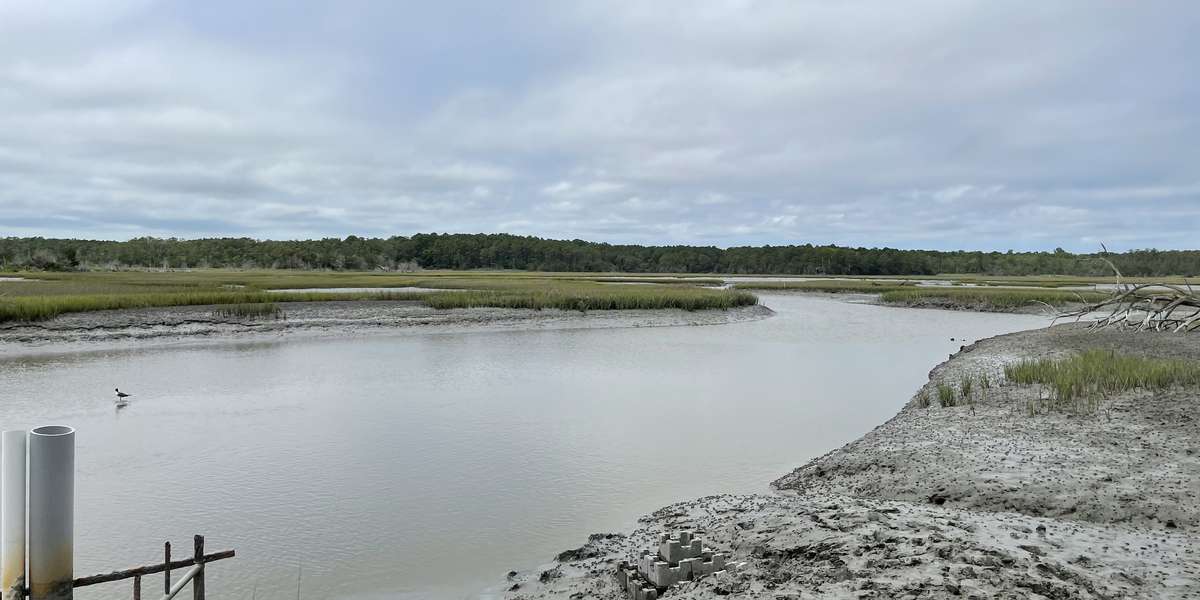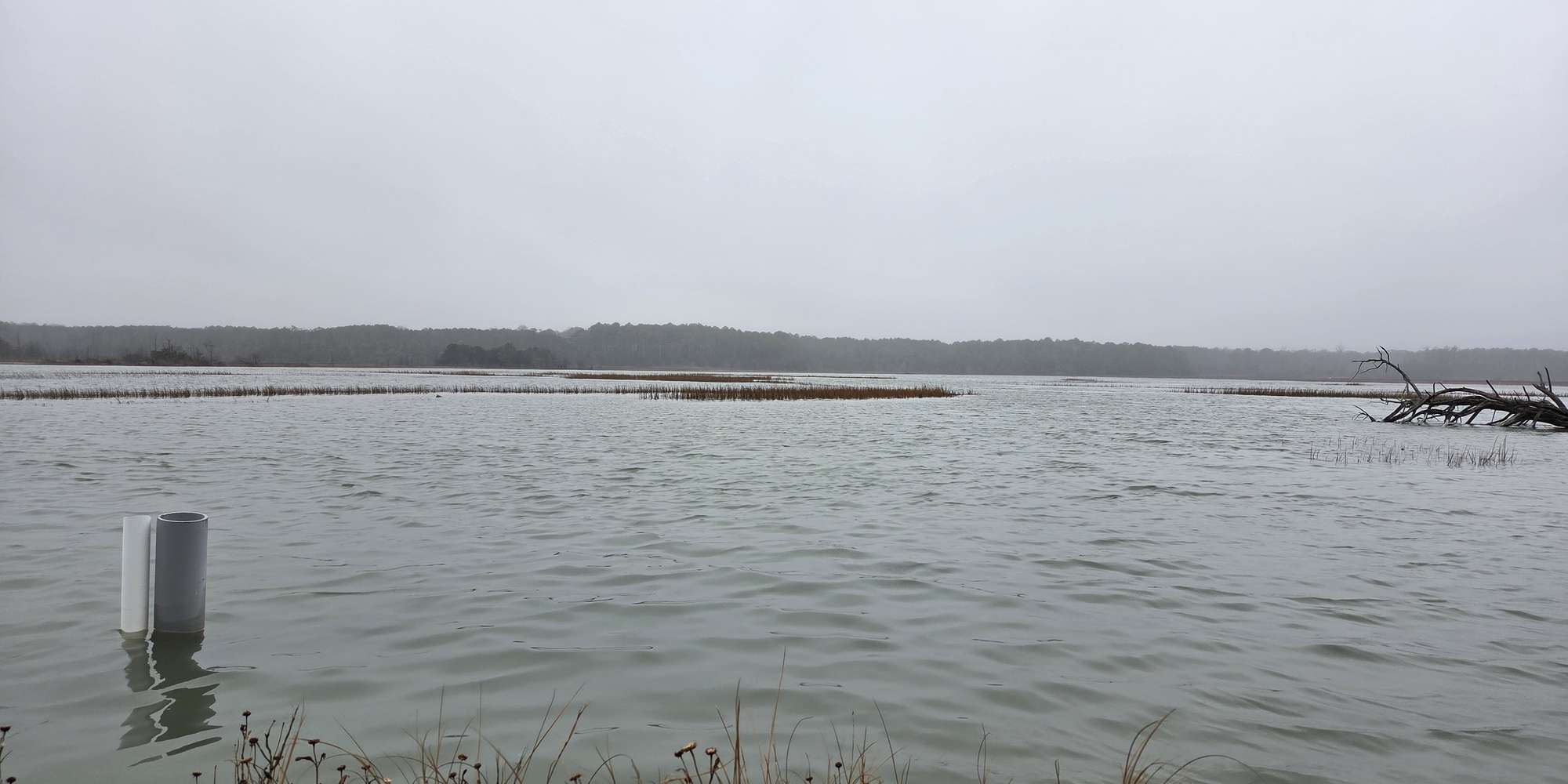2022
2023
2024
2025
2026



2022
2023
2024
2025
2026
William B. Cummings Birding And Wildlife Trail - Brownsville Preserve, Nassawadox, VA
Managed by Virginia Coast Reserve LTER
Since Jun 2021
In Virginia, US
VCR101
This chronolog combines 251 photos from 99 contributors. Learn more
About this site
Do you see the cluster of blocks at the bottom of these photos? That cluster is an ‘oyster castle’, a type of artificial reef habitat made from limestone gravel, concrete, and crushed shell used to restore oysters. Oysters were historically abundant along the Eastern Shore of Virginia; however, due to disease, overharvesting and habitat destruction, oyster populations have declined dramatically. Fortunately, significant efforts have been made to restore oyster populations. Placing this hard substrate in the water provides potential habitat for baby oysters to settle and grow into big, healthy adult oysters. The Nature Conservancy’s staff and local scientists installed this castle in June 2021, but a big question remains… Did they restore habitat in a spot where the oysters will thrive? Your photo submission will help answer this question by documenting the progress of restoration through time. Thank you for contributing to our time-lapse in partnership with the Virginia Coast Reserve Long Term Ecological Research Program , the University of Virginia’s Coastal Research Center, and The Nature Conservancy’s Virginia Coast Reserve Chapter .
About Virginia Coast Reserve LTER
How do slow, progressive environmental changes (such as sea level rise) interact with brief disturbances (including intense waves and storms) to shape our seaside landscape? We are trying to find out!
Since the mid 1980s, scientists from over half a dozen universities have worked together through the Virginia Coast Resever (VCR) Long Term Ecological Research (LTER) program to better understand barrier islands, coastal forests, salt marshes, oyster reefs, and seagrass meadows.
Our goal is to not only UNDERSTAND how coastal systems work, but also to PREDICT how they may function or change in the future due to a changing climate, sea level rise, and land usage. We also connect any of those changes to the ecological and economic services the coastal barrier island system provides to you (such as storm protection, flood control, fisheries habitat, tourism).
Beyond VA's coast, we are connected to a national network of LTER sites, studying and comparing environments all over world.
For nature-lovers
Explore chronologs
For organizations
Chronolog is a monitoring tool for parks, nature centers, wildlife organizations, schools, and museums worldwide. With over 100,000 contributors across 300 organizations, Chronolog is on a mission to engage communities with nature while recording important natural changes.
© Chronolog 2026 | Terms